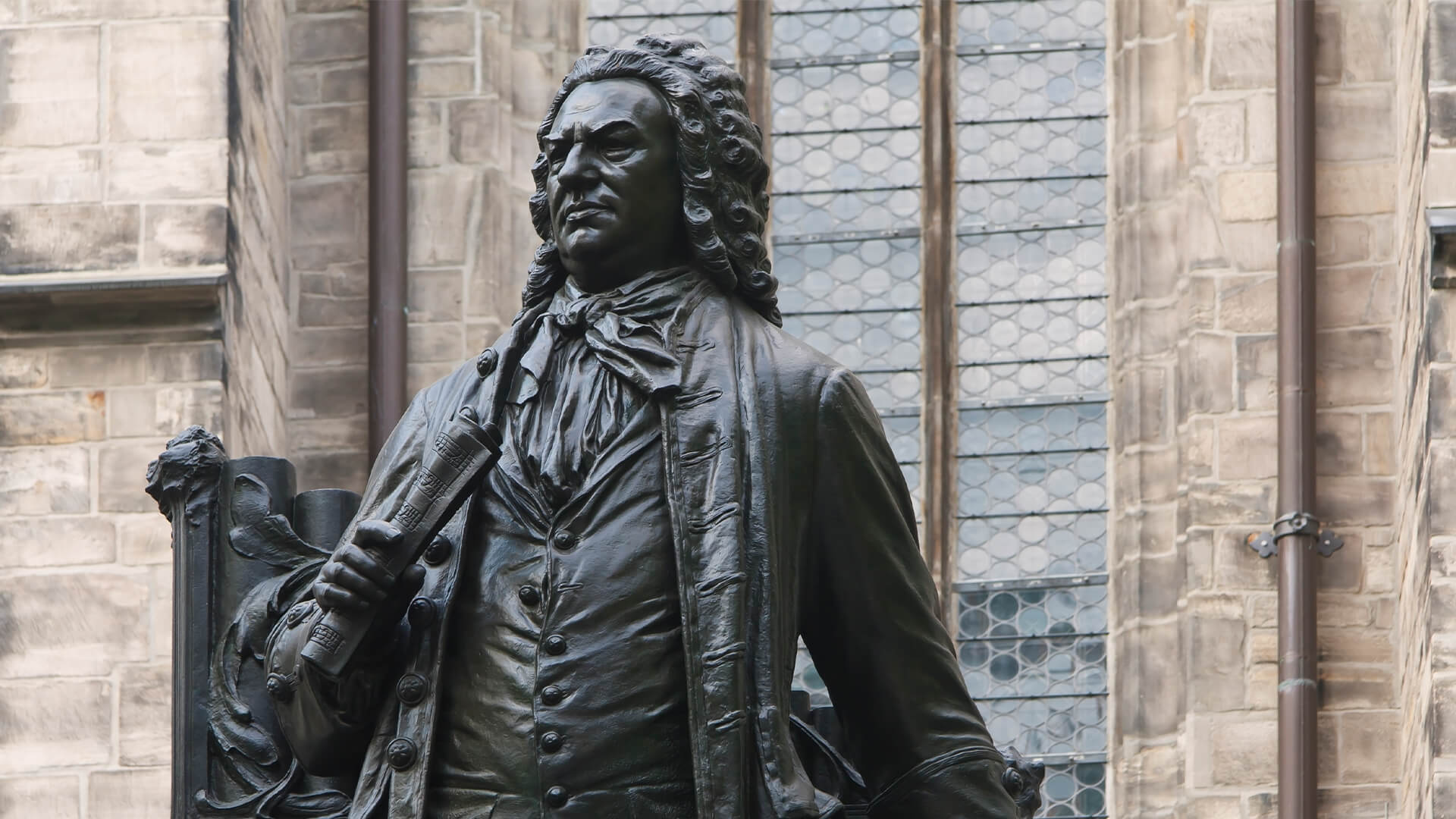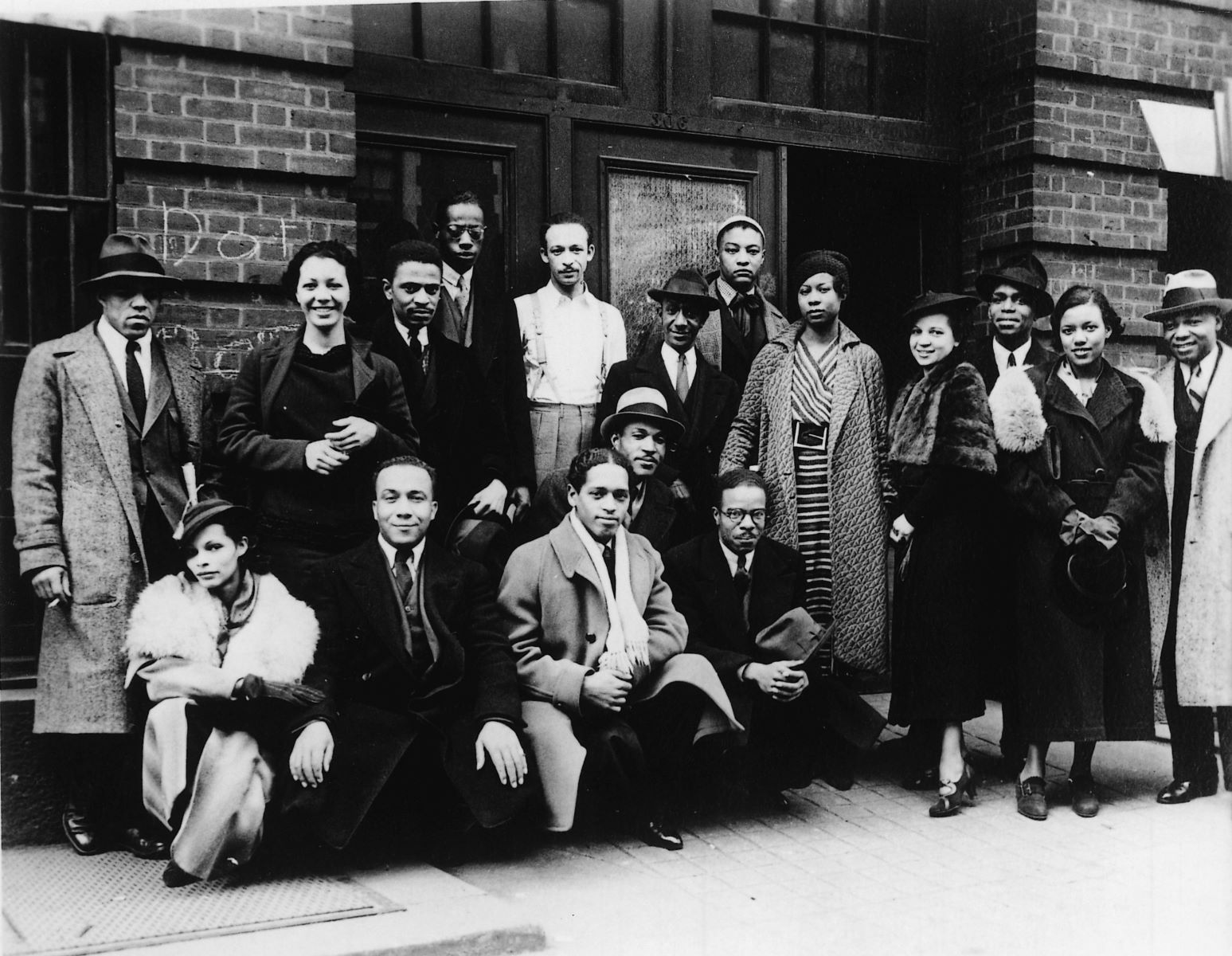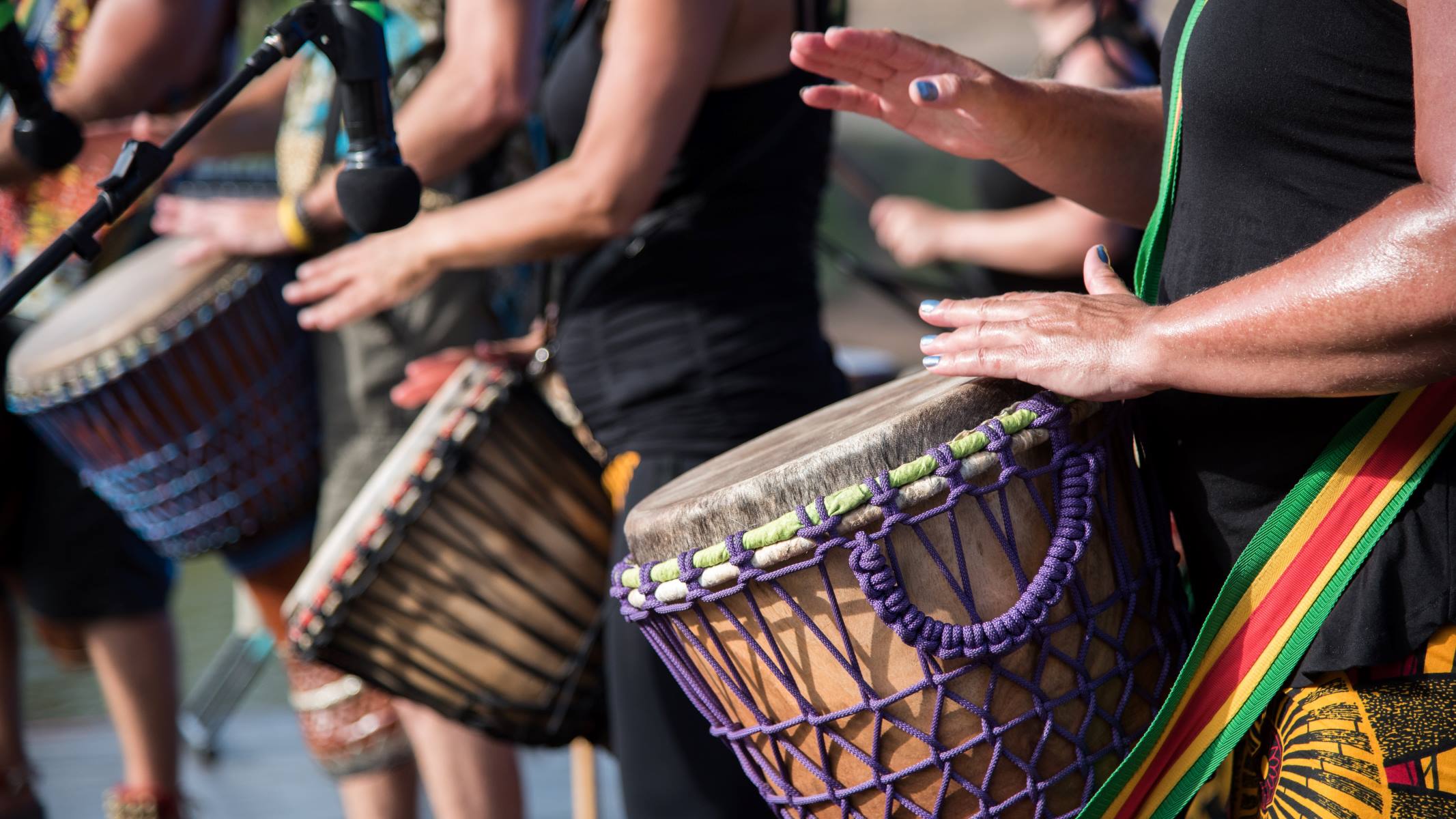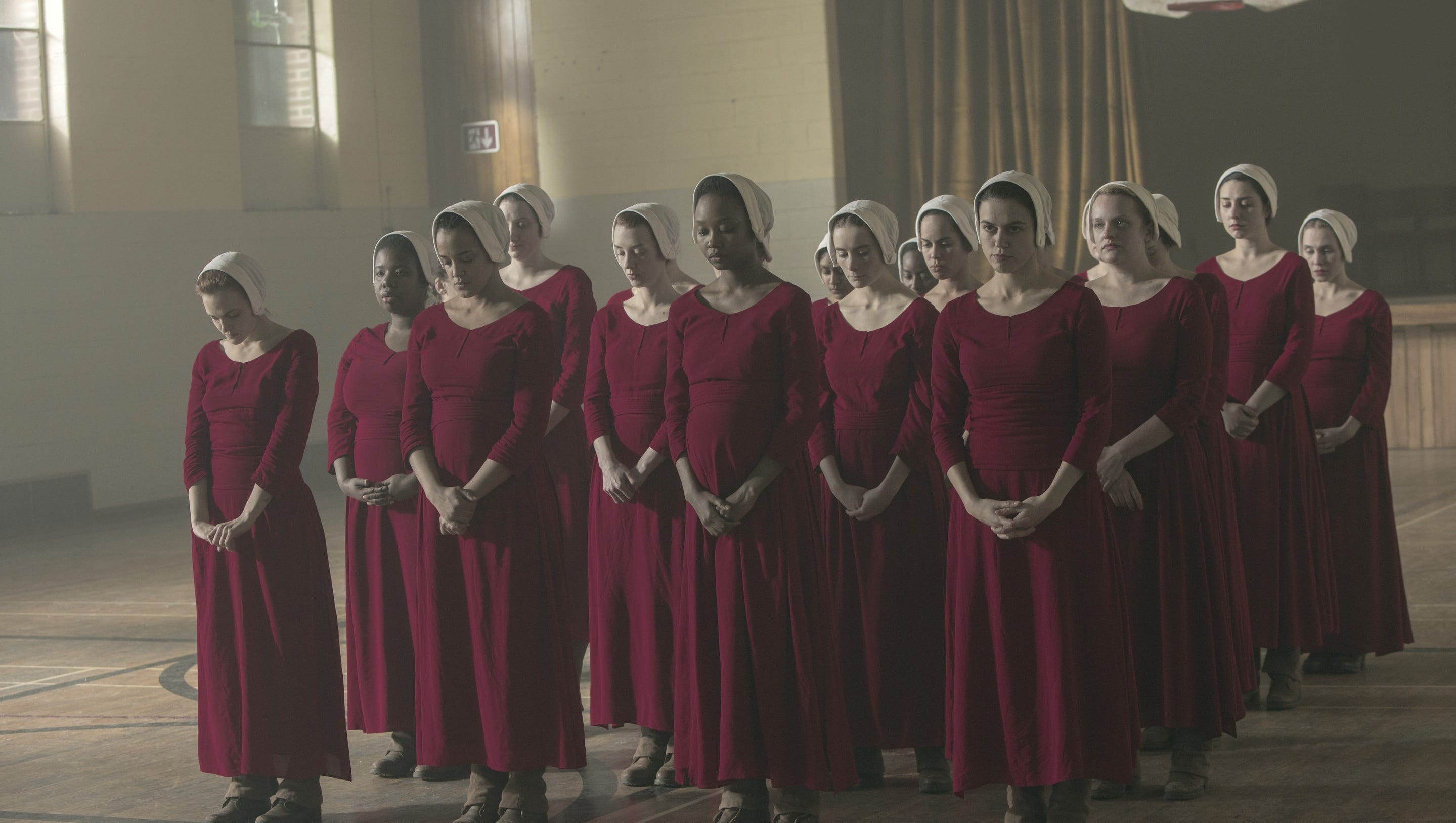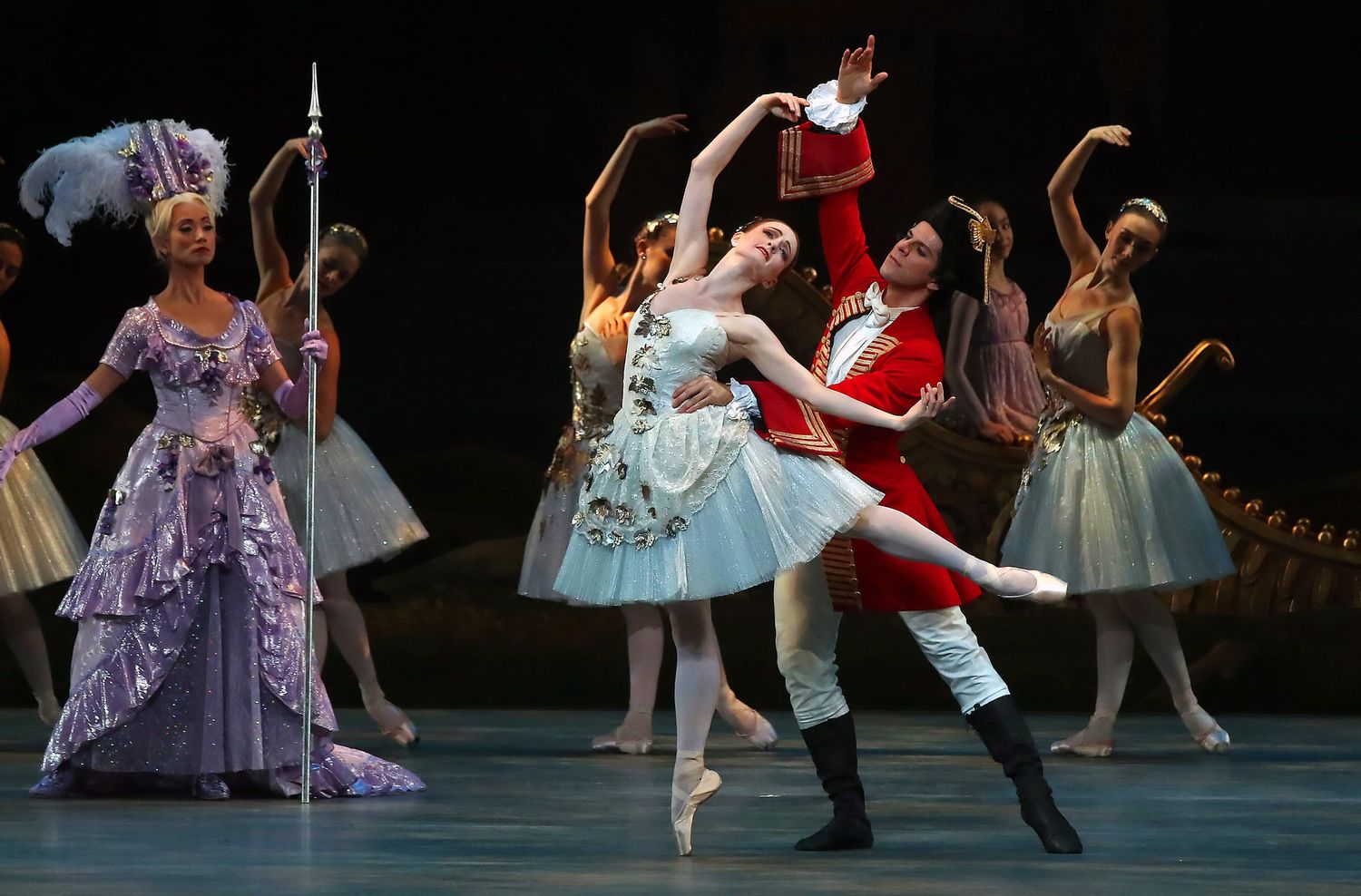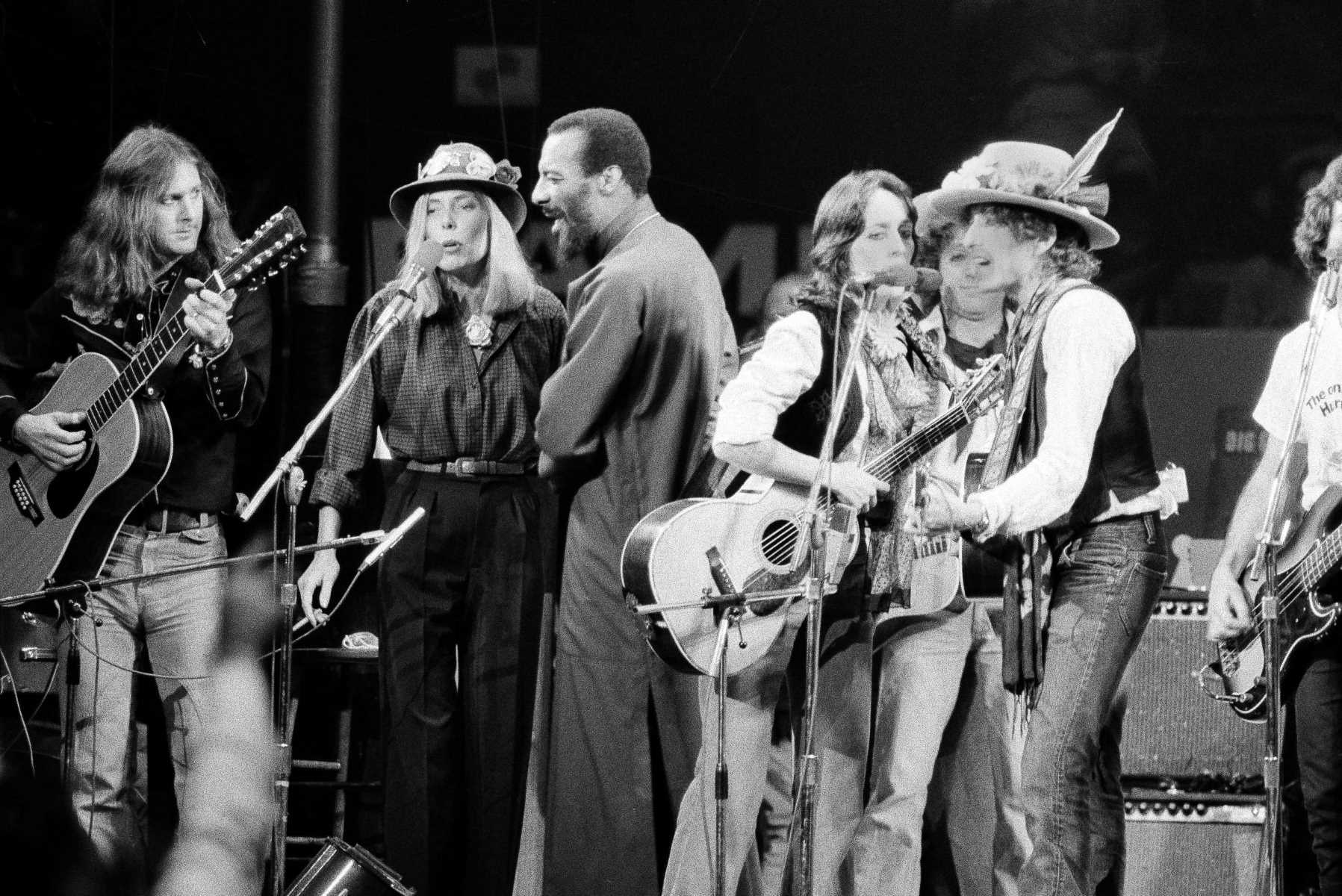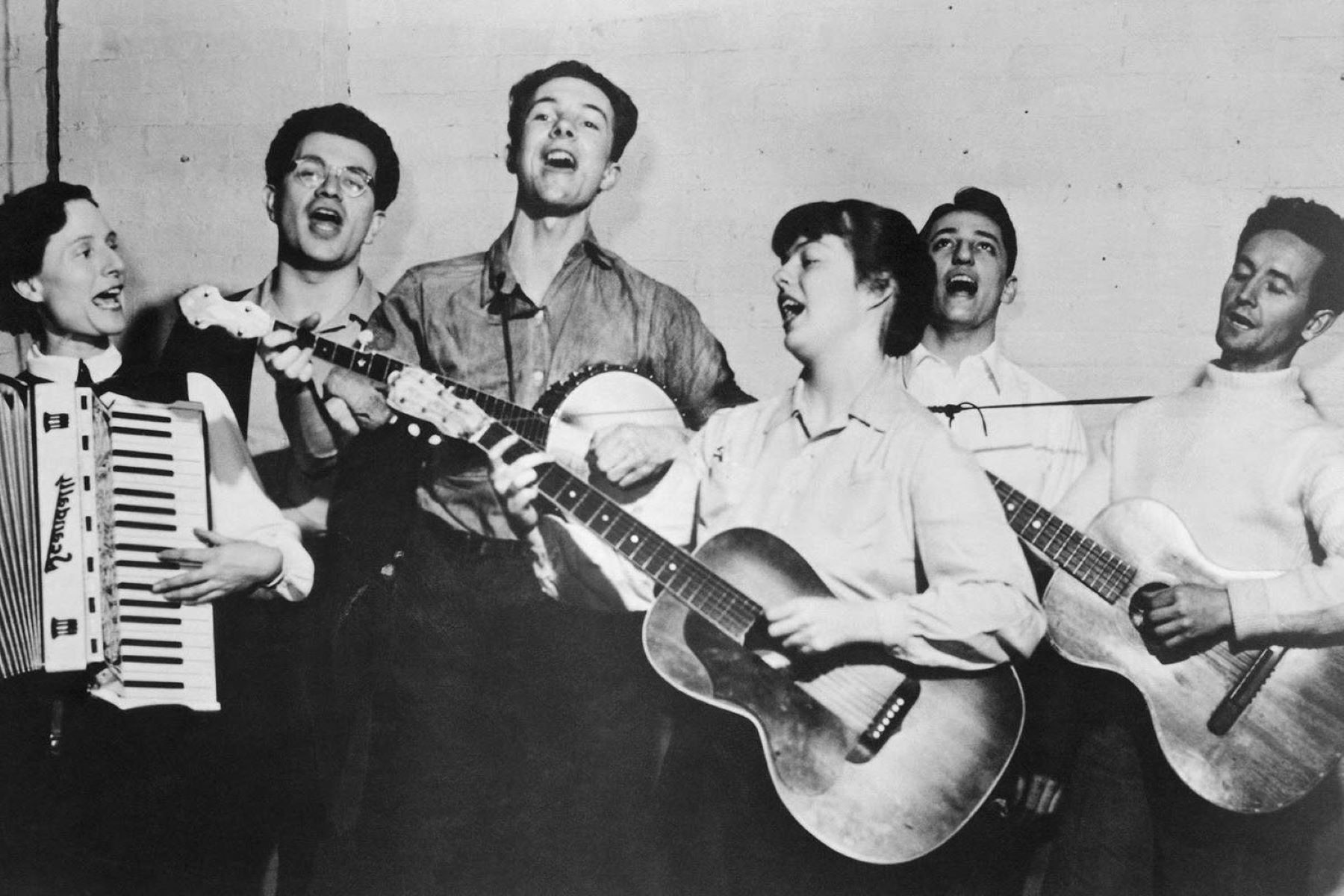

Folk
Why Is Folk Music Important
Modified: March 11, 2024
Discover the significance of folk music and its cultural importance. Explore the rich history and essence of folk through renowned artists and timeless melodies.
(Many of the links in this article redirect to a specific reviewed product. Your purchase of these products through affiliate links helps to generate commission for AudioLover.com, at no extra cost. Learn more)
Table of Contents
- Introduction
- Historical Background of Folk Music
- Preservation of Cultural Heritage
- Reflection of Identity and Community
- Oral Tradition and Passing Down of Stories
- Expression of Social and Political Commentary
- Promoting Diversity and Inclusivity
- Influence on Popular Music
- The Role of Folk Music in Revivals and Movements
- Conclusion
Introduction
Folk music is a powerful and authentic art form that has captivated audiences for centuries. Rooted in the traditions and cultural identities of diverse communities around the world, folk music is a reflection of the human experience, telling stories of love, loss, struggle, and joy. It serves as a vital link to our past, preserving our cultural heritage and connecting us to our ancestors.
Unlike commercialized genres, folk music has an organic quality that emerges from the heart of communities. It is often handed down through generations, evolving and adapting as it travels from one region to another. It is a celebration of our shared humanity, transcending language barriers and fostering a sense of unity.
But what makes folk music so important? Why is it worth preserving and promoting? In this article, we will explore the historical background of folk music, its role in preserving cultural heritage, its reflection of identity and community, its contribution to social and political commentary, and its influence on popular music.
Our journey will encompass the joy of discovering new artists and songs, the power of storytelling in the oral tradition, and the role of folk music in revivals and social movements. By understanding the significance of folk music, we gain a deeper appreciation for this timeless art form and its impact on our lives.
Historical Background of Folk Music
Folk music has a rich and diverse history that spans centuries and continents. It is deeply intertwined with the cultural and social fabric of communities around the world. The origins of folk music can be traced back to ancient times, when it served as a form of oral storytelling and a means of passing down traditions from one generation to another.
In Europe, folk music evolved alongside the rise of agricultural societies and the development of communal traditions. The songs and melodies were often associated with specific regions or communities and were deeply rooted in the daily lives of the people. They served as a means of entertainment, a way to express emotions, and a tool for preserving cultural heritage.
Similarly, in other parts of the world, such as Africa, Asia, and the Americas, folk music emerged as a reflection of local culture and history. It became a medium through which people expressed their struggles, joys, and aspirations. From tribal drumming to ballads sung by cowboys, folk music took on different forms and styles, yet it always retained its authentic and grassroots essence.
During the 19th and 20th centuries, folk music experienced a revival as collectors and scholars began to recognize its importance and started recording and preserving traditional songs and melodies. This led to the establishment of archives and libraries dedicated to the preservation of folk music, ensuring that future generations would have access to this invaluable cultural heritage.
In addition, the advent of sound recording technology in the early 20th century allowed folk music to reach a wider audience. Artists like Woody Guthrie, Pete Seeger, and Joan Baez used their voices and guitars to bring folk music into the mainstream, using their songs to advocate for social justice and civil rights.
Today, folk music continues to thrive, with artists and enthusiasts around the world embracing and reinterpreting traditional tunes, as well as creating new ones that reflect contemporary issues. Whether it’s the haunting melodies of Scottish ballads, the foot-stomping rhythms of American bluegrass, or the vibrant harmonies of African folk songs, folk music remains a vital and cherished part of our collective heritage.
Preservation of Cultural Heritage
Folk music plays a vital role in preserving and safeguarding our cultural heritage. It serves as a living testament to the traditions, values, and beliefs of different communities and provides future generations with a connection to their roots. Through the preservation of folk music, we ensure that the stories, customs, and melodies of our ancestors are not forgotten.
One way in which folk music preserves cultural heritage is through the transmission of oral traditions. Many folk songs have been passed down through generations by word of mouth, with each retelling adding a layer of personal interpretation and meaning. This oral tradition allows for the preservation of historical events and folk tales that may otherwise have been lost to time.
Furthermore, folk music serves as a repository of linguistic diversity. Many traditional songs are sung in regional dialects and languages that may have faded from everyday use. By keeping these songs alive, we maintain and celebrate the linguistic diversity of our ancestors and embrace the beauty of different languages.
Folk music also acts as a bridge between generations, fostering intergenerational connections and understanding. When older generations share their love for folk music with younger ones, they pass on not just the songs themselves, but also the stories, emotions, and values embedded within them. This strengthens the sense of continuity and belonging within families and communities.
Moreover, folk music often serves as a mirror to society, reflecting the social, historical, and cultural contexts in which it was created. It can provide insight into the struggles, triumphs, and everyday lives of past generations. By preserving and studying folk songs, historians and anthropologists can gain valuable insights into different periods of history and the experiences of those who came before us.
Efforts are being made around the world to document and preserve folk music. Governments, cultural organizations, and individuals recognize the importance of collecting recordings, documenting lyrics, and archiving performances to ensure that these precious musical treasures are not lost. Digital platforms and online archives have also become invaluable in making folk music accessible to a global audience.
By preserving our cultural heritage through folk music, we not only honor the past but also create a foundation for building a vibrant and diverse future. It is through the preservation and celebration of our traditions that we can truly appreciate the richness and beauty of our shared human experience.
Reflection of Identity and Community
Folk music serves as a powerful reflection of identity and community, providing a platform for individuals and groups to express their values, beliefs, and experiences. It acts as a cultural mirror, capturing the essence of a community’s collective identity and serving as a source of unity and solidarity.
One of the ways folk music reflects identity is through its connection to specific regions or ethnic groups. Each community’s unique cultural heritage is often expressed through distinct musical styles, instruments, and lyrical themes. For example, Celtic music reflects the traditions and history of the Irish and Scottish people, while country music embodies the American rural experience.
Moreover, folk music serves as a vessel for storytelling, enabling communities to preserve their history, traditions, and legends. Through narratives woven into song lyrics, folk music becomes a living archive of a community’s collective memory. It allows individuals to pass down their stories and experiences to future generations, ensuring that their voices and perspectives are heard and remembered.
In addition to preserving cultural identity, folk music fosters a sense of community and belonging. It brings people together, whether in an intimate gathering around a campfire or in a lively folk festival. The shared experience of singing, dancing, and enjoying folk music creates bonds and fosters a sense of camaraderie.
Folk music is often participatory, inviting listeners to engage actively by singing along or playing an instrument. This participatory nature builds connections and promotes inclusion within a community, regardless of skill level or background. It creates a sense of shared ownership, as everyone becomes a part of the music-making experience.
Moreover, folk music provides a platform for marginalized voices and communities to be heard. It gives voice to the struggles, aspirations, and resilience of individuals and groups who may otherwise be ignored or silenced. Through folk music, these communities can assert their identity, raise awareness about social issues, and demand justice and equality.
Contemporary folk music continues to reflect the diversity and evolving nature of identity and community. Artists draw inspiration from their personal journeys, cultural backgrounds, and social perspectives, resulting in a tapestry of songs that reflect the complexities and nuances of modern society.
By embracing and celebrating the insights and experiences captured in folk music, we not only honor our own identities and communities but also develop a deeper understanding and appreciation for the richness and diversity of human existence.
Oral Tradition and Passing Down of Stories
One of the defining characteristics of folk music is its close association with oral tradition. For centuries, folk songs have been passed down through generations, carrying with them the stories, traditions, and values of communities. This oral transmission ensures the preservation of cultural heritage and allows for the continuation of a rich musical legacy.
Oral tradition refers to the practice of passing down knowledge, stories, and music through spoken and sung words rather than through written texts. In the context of folk music, this tradition has allowed songs to evolve and adapt over time, as each generation adds their own interpretation and nuances to the melodies and lyrics.
Through the oral tradition, folk music becomes more than just a collection of songs; it becomes a vehicle for storytelling. Folk songs often encapsulate the joys, struggles, triumphs, and sorrows of everyday life, offering a glimpse into the communal experiences and shared history of a people.
Furthermore, the oral tradition allows for a dynamic and fluid expression of folklore and mythology. Folk songs can act as repositories of ancient legends, myths, and folktales, serving as a bridge between generations and cultures. As these stories are passed down through songs, they continue to resonate with new audiences, keeping the oral tradition alive and vibrant.
The passing down of stories through folk music serves a crucial role in preserving cultural memory. It ensures that significant events, historical narratives, and personal anecdotes are not forgotten. From tales of love and heartbreak to accounts of social upheaval and political resistance, folk songs act as a conduit for the collective memory of a community.
Moreover, the oral tradition allows for a more inclusive and participatory experience of folk music. It invites listeners to engage actively, singing or humming along, and becoming part of the storytelling process. This interactive element fosters a sense of connection and creates a shared space where everyone can contribute to the preservation and reinterpretation of folk traditions.
While written records and digital technology have added new dimensions to the preservation and dissemination of music, the essence of folk music still lies in the oral tradition. It is through the act of passing down songs and stories from one generation to another that the cultural heritage embedded within folk music continues to thrive.
By understanding and valuing the importance of oral tradition in folk music, we can appreciate the depth and richness of the stories and traditions that have shaped our collective identities.
Expression of Social and Political Commentary
Folk music has long been a powerful platform for expressing social and political commentary. From protest songs that challenge injustice to ballads that shine a light on societal issues, folk music serves as a vehicle for artists to voice their perspectives and inspire change.
Throughout history, folk musicians have used their craft to raise awareness about pressing social issues and advocate for justice. Woody Guthrie’s iconic song “This Land Is Your Land” became a rallying cry for equality and unity during the Great Depression. Pete Seeger’s performances of songs like “We Shall Overcome” became anthems for the Civil Rights Movement in the United States.
Folk music has the ability to shed light on marginalized voices and give voice to those who are often unheard. It can address topics such as discrimination, poverty, war, and environmental degradation. Through storytelling and vivid imagery, folk songs capture the raw realities of society and shed light on the struggles and experiences of individuals and communities.
Furthermore, folk music often serves as a source of solace and comfort during times of social and political upheaval. It provides a space for collective healing and solidarity, as audiences connect with the emotions and messages conveyed through the music. In these tumultuous times, folk songs can be a source of resilience, hope, and inspiration.
Contemporary folk musicians continue to use their music as a platform for social and political commentary. They tackle issues such as racism, gender inequality, and climate change, amplifying the voices of marginalized communities and inspiring dialogue and action.
One of the unique aspects of folk music is its ability to transcend boundaries and cultures. As these songs are sung and shared by people from different walks of life, they have the power to unite individuals in a common cause. Folk music fosters a sense of community and shared purpose, reminding us that we are not alone in our struggles and aspirations.
By blending artistry and activism, folk musicians tap into the transformative power of music to ignite social change and inspire collective action. Their songs resonate with listeners, inviting them to not only reflect on the state of the world but also actively engage in creating a more just and equitable society.
Through the expression of social and political commentary, folk music continues to be a driving force for raising awareness, challenging norms, and inspiring positive change. It serves as a powerful reminder that music has the capacity to shape hearts and minds, mobilize communities, and create a lasting impact on society.
Promoting Diversity and Inclusivity
Folk music plays a vital role in promoting diversity and inclusivity by celebrating the richness of different cultures, traditions, and voices. It provides a platform for artists from diverse backgrounds to share their unique perspectives and experiences, fostering understanding and appreciation among audiences.
One of the key strengths of folk music lies in its ability to cross cultural boundaries. It encompasses a wide array of musical styles, instruments, and lyrical themes, reflecting the diversity of human expression. From the haunting melodies of Irish folk songs to the rhythmic beats of Afro-Cuban folk music, folk genres from around the world showcase the unique cultural heritage of different regions and communities.
Moreover, folk music creates opportunities for artists from marginalized or underrepresented communities to have their voices heard. It acts as a platform for the stories, struggles, and achievements of individuals and groups who may have been historically silenced or excluded.
By providing a space for these diverse voices and perspectives, folk music challenges societal norms and biases. It encourages dialogue and empathy, fostering an inclusive environment where all individuals are recognized and valued for their contributions to the music and larger society.
Folk music festivals and gatherings are particularly important in promoting diversity and inclusivity. These events often feature performances by artists representing various cultures, fostering cross-cultural interactions and understanding. They provide an opportunity for people from different backgrounds to come together, share their traditions, and learn from one another.
In addition, folk music encourages collaboration and fusion between different musical styles and traditions. It creates a platform for artists to explore and experiment with cross-genre collaborations, blending elements from different cultures to create something new. This fusion not only produces unique and innovative sounds but also demonstrates the power of music to transcend boundaries and unite people.
Furthermore, folk music actively challenges stereotypes and prejudices by showcasing the talent and creativity of artists from diverse backgrounds. It provides a counter-narrative to dominant cultural narratives and offers alternative perspectives that challenge the status quo.
Through its celebration of diversity and inclusivity, folk music cultivates appreciation for cultural differences and fosters a sense of global interconnectedness. It reminds us of the beauty and strength that can be found in embracing our unique identities and celebrating the traditions of others.
By promoting diversity and inclusivity, folk music contributes to a more equitable and harmonious society, where individuals from all backgrounds can come together and celebrate the music that unites us all.
Influence on Popular Music
Folk music has had a profound and enduring influence on popular music across genres and generations. Its impact can be seen in the melodies, song structures, and lyrical themes of a wide range of musical styles, shaping the landscape of popular music as we know it today.
One of the ways folk music has influenced popular music is through its emphasis on storytelling. Folk songs often tell vivid, narrative-driven tales that resonate with listeners on a deep emotional level. This storytelling tradition has permeated popular music, from the poetic lyrics of Bob Dylan to the introspective storytelling of artists like Joni Mitchell and Tracy Chapman.
The simplicity and authenticity of folk music have also made their mark on popular music. Many artists incorporate acoustic instruments, stripped-down arrangements, and intimate performances in their work, drawing inspiration from the raw and organic sound of folk music.
Moreover, folk music’s focus on social and political commentary has permeated the realm of popular music. From protest songs during the Civil Rights Movement to contemporary artists addressing issues such as inequality and environmental sustainability, the influence of folk music is evident in the ability of popular music to shed light on societal issues and inspire change.
Folk music has also played a significant role in the development of specific genres within popular music. For example, the influence of American folk music can be heard in the roots of country and blues, as well as in the evolution of rock and roll. Many rock icons, such as Bob Dylan and Neil Young, drew inspiration from folk music, incorporating its storytelling and activist spirit into their music.
In recent years, there has been a resurgence of interest in folk-inspired music, with contemporary artists embracing folk elements in their songs. This fusion of folk with other genres has given rise to a diverse range of music that blends the traditional with the contemporary, creating a fresh and innovative sound.
Furthermore, folk music has provided a foundation for the development of music festivals and folk gatherings that celebrate the diversity of musical expressions. These events have not only become important spaces for folk musicians to showcase their talent but have also influenced the programming and atmosphere of larger music festivals, bringing folk-inspired sounds and themes to a wider audience.
The enduring influence of folk music on popular music is a testament to its power and timelessness. It continues to inspire and shape artists across musical genres, reminding us of the universal appeal and significance of authentic storytelling, social commentary, and a genuine connection to cultural heritage.
The Role of Folk Music in Revivals and Movements
Folk music has long played a significant role in revivals and social movements, providing a powerful soundtrack to inspire and mobilize communities. Throughout history, folk music has acted as a catalyst for change, uniting people around shared values, promoting social justice, and giving voice to the voiceless.
One of the key ways in which folk music has been instrumental in revivals and movements is through its ability to galvanize communities. Folk songs have served as anthems and rallying cries, uniting individuals in their efforts to bring about social or political transformation. Whether it be the Civil Rights Movement in the United States or anti-apartheid efforts in South Africa, folk music provided a platform for activists to express their hopes, frustrations, and demands.
Folk music has also played a significant role in preserving and reviving cultural traditions and heritage. During times of cultural suppression or assimilation, folk songs have acted as a powerful tool for cultural preservation and resistance. In many instances, folk music has served as a vehicle for reclaiming and celebrating marginalized identities, fighting against attempts to erase or diminish cultural diversity.
Revivals of folk music have sparked new interest in traditional musical styles and raised awareness of cultural heritage. As artists revisit and reinterpret traditional folk songs, they breathe new life into age-old melodies, making them relevant and accessible to new generations. This revival not only preserves the roots of folk music but also introduces it to wider audiences.
Folk music has also played a prominent role in environmental movements and campaigns for sustainability. Many folk songs explore the relationship between humans and the natural world, highlighting the importance of preserving the environment for future generations. Artists like Pete Seeger, known for his environmental activism, used folk music to raise awareness about environmental issues and advocate for conservation.
Furthermore, folk music has been a powerful medium for advocating for the rights of workers and marginalized communities. Folk songs have given voice to the struggles and aspirations of labor movements, highlighting the injustices faced by workers and calling for fair treatment and equitable rights. Songs like “Which Side Are You On?” by Florence Reece and “Union Maid” by Woody Guthrie have become anthems for workers’ rights.
Folk music continues to be a driving force in contemporary movements for equality, justice, and social change. Artists draw on the rich legacy of folk music to provide a soundtrack to movements advocating for LGBTQ+ rights, gender equality, racial justice, and more. Through their music, these artists ignite conversations, mobilize communities, and inspire individuals to take action.
By using the power of music and storytelling, folk music has played a central role in revivals and social movements throughout history. It has given voice to the marginalized, united communities, and acted as a vehicle for raising awareness, fostering solidarity, and inspiring transformative change.
Conclusion
Folk music holds a special place in the hearts of music lovers worldwide. Its deep-rooted history, ability to preserve cultural heritage, reflection of identity and community, expression of social and political commentary, promotion of diversity and inclusivity, influence on popular music, and role in revivals and movements make it an invaluable art form.
From the ancient songs passed down through oral tradition to the contemporary folk artists who continue to push boundaries and innovate, folk music remains a powerful vehicle for storytelling, cultural preservation, and social change.
Through folk music, we connect with the past, honoring our ancestors and celebrating the traditions that have shaped us. Folk songs capture the essence of communities, expressing their joys, sorrows, struggles, and aspirations. They bridge generations and cultures, fostering a sense of unity, and reminding us of our shared humanity.
Folk music has a unique ability to voice social and political commentary, shedding light on injustices and advocating for equality and justice. It amplifies marginalized voices, creates space for dialogue, and inspires individuals to take action for a better world.
Folk music also promotes diversity and inclusivity by celebrating the richness of different cultures and offering a platform for artists from all backgrounds to share their stories and perspectives. It transcends boundaries, fostering understanding, and highlighting the beauty of our global tapestry.
Moreover, folk music has left an indelible mark on popular music, shaping genres, inspiring artists, and influencing the development of musical styles. Its simplicity, authenticity, and emphasis on storytelling continue to resonate with audiences of all ages and backgrounds.
In revivals and social movements, folk music has played a crucial role, uniting communities, preserving cultural heritage, and inspiring change. It has given voice to the silenced and celebrated the strength of collective action in the pursuit of equality, justice, and freedom.
As we embrace the power of folk music, we honor our cultural past, amplify marginalized voices, foster inclusivity, and inspire a more just and compassionate society. Through its timeless melodies and heartfelt lyrics, folk music reminds us of the power of music as a force for connection, expression, and transformation.
So let us continue to cherish and celebrate folk music, recognizing its profound impact on our lives, our communities, and our world. Let the melodies and stories that have been passed down through generations continue to resonate, creating a harmonious and vibrant tapestry of human experience.

